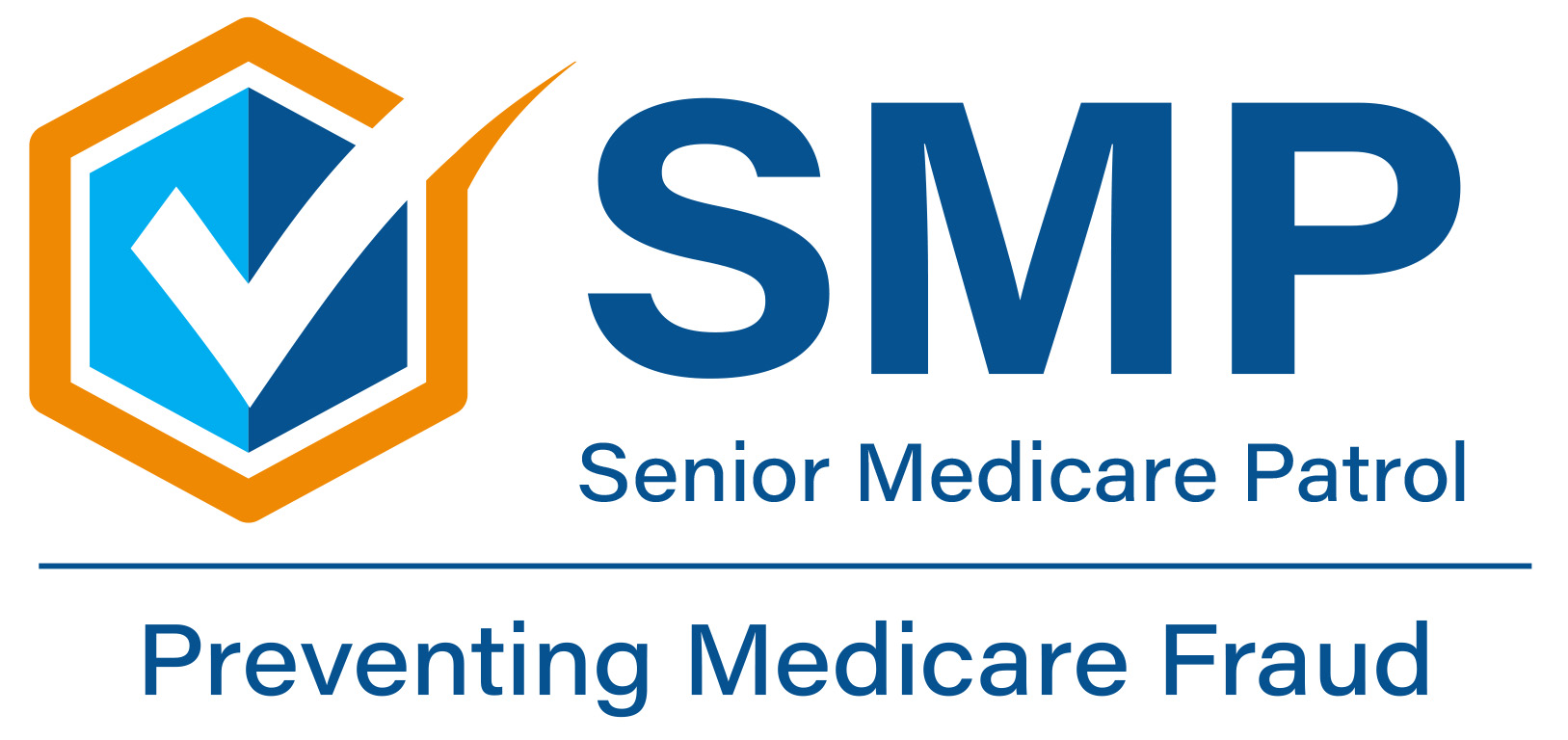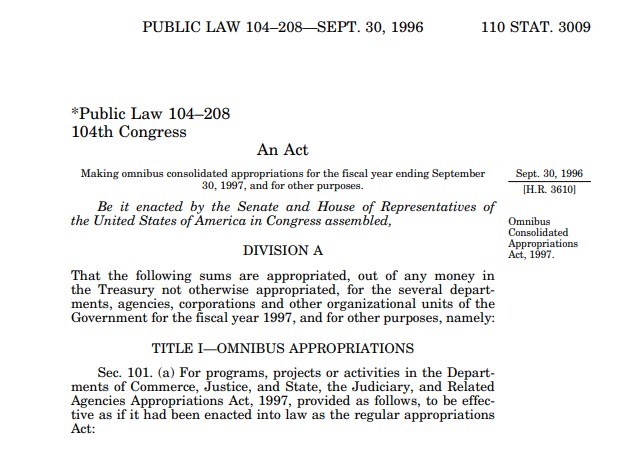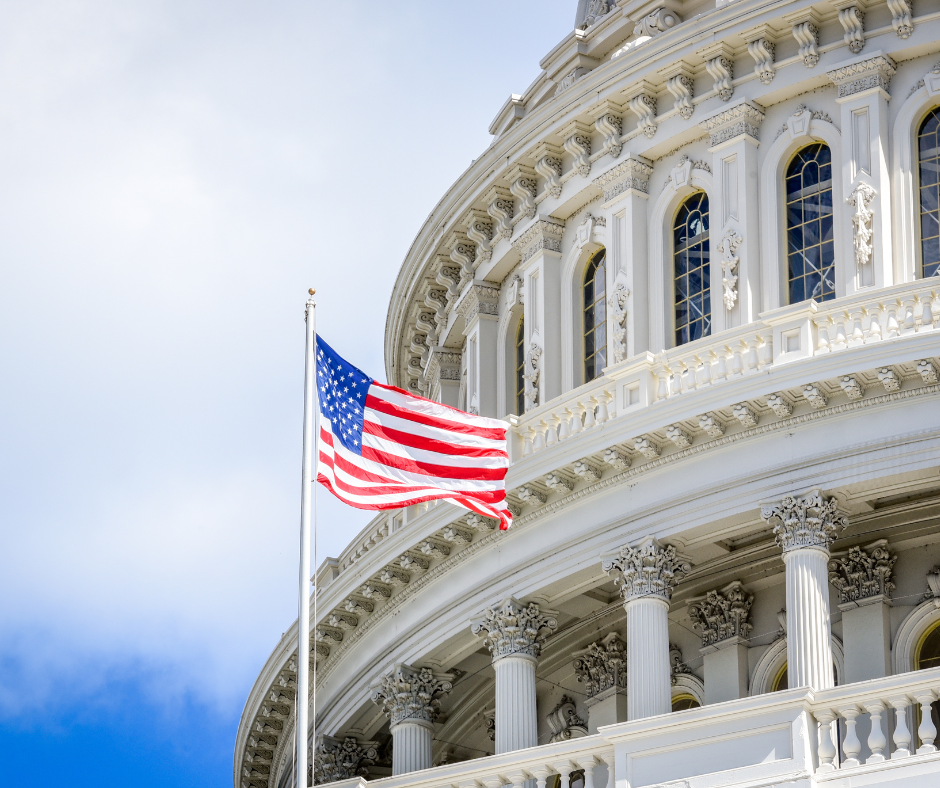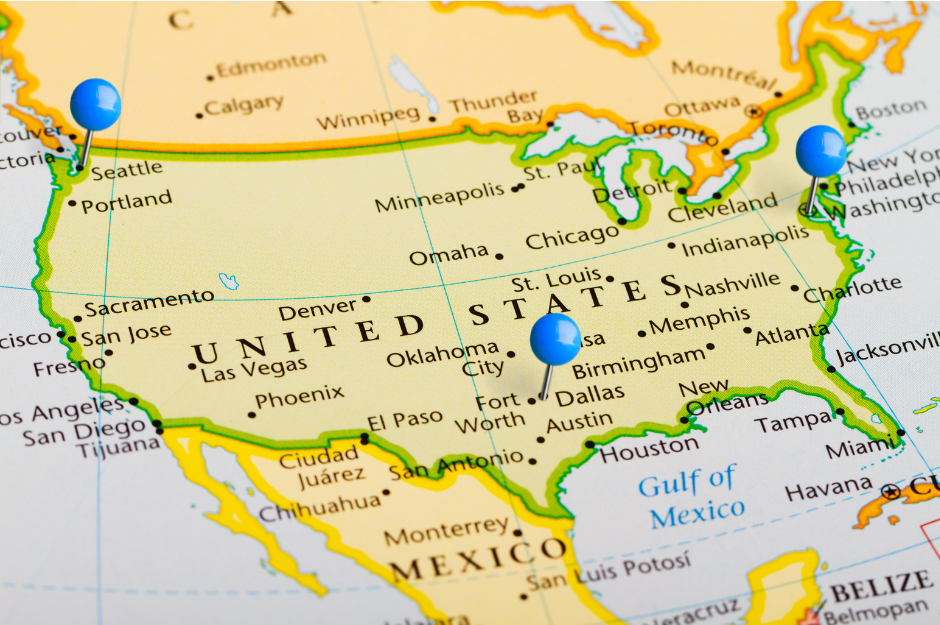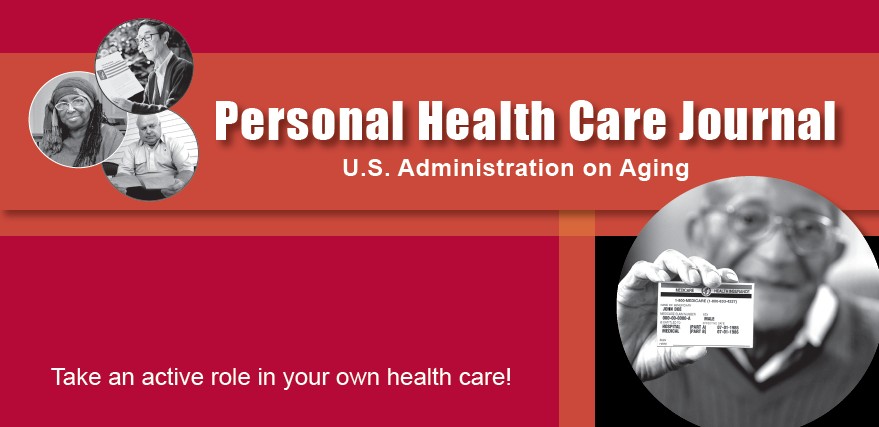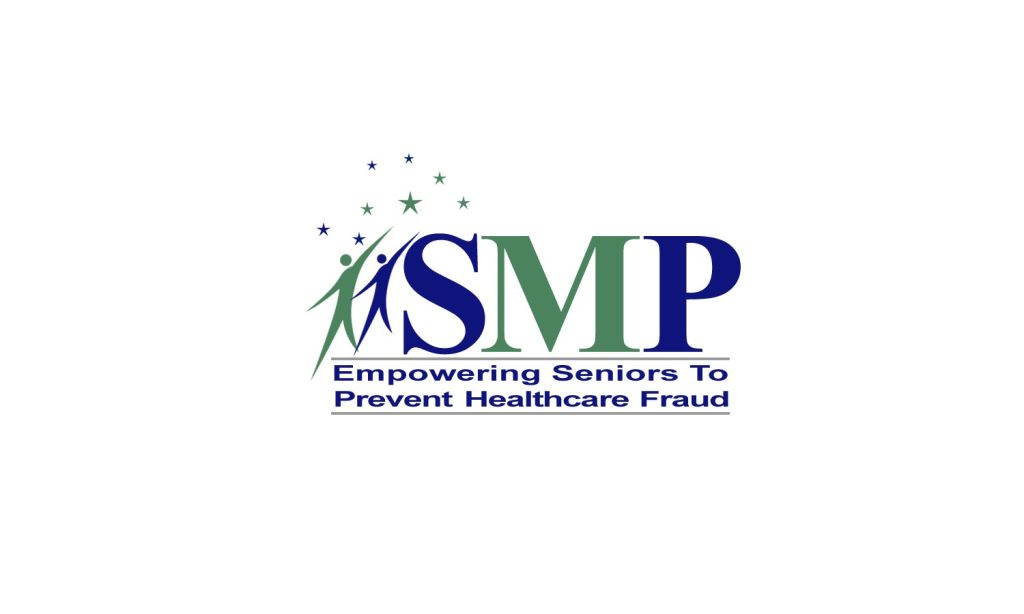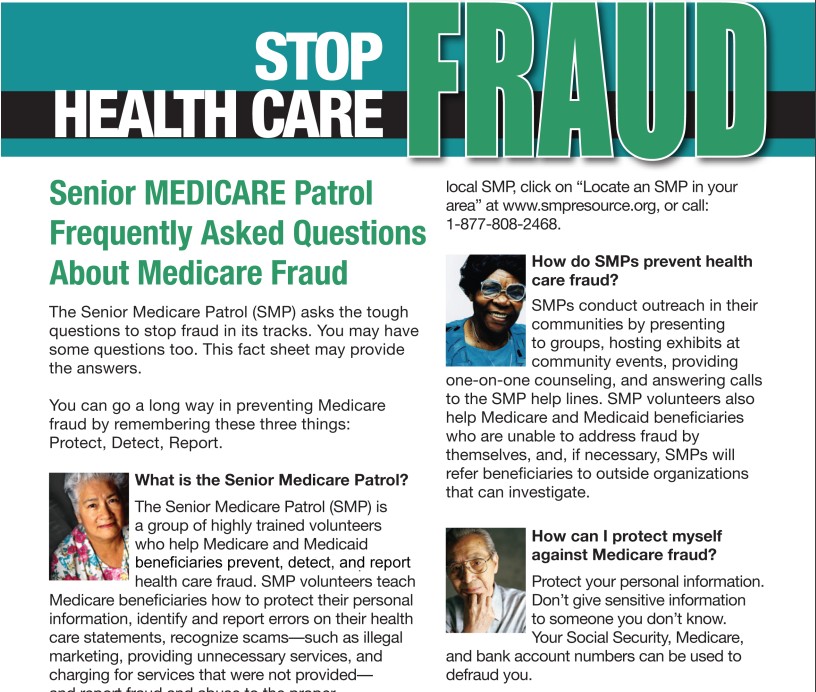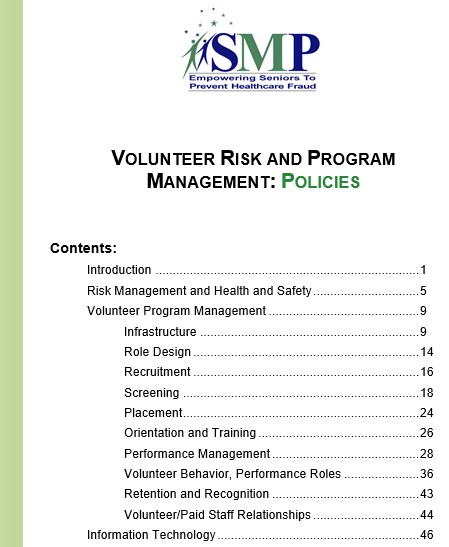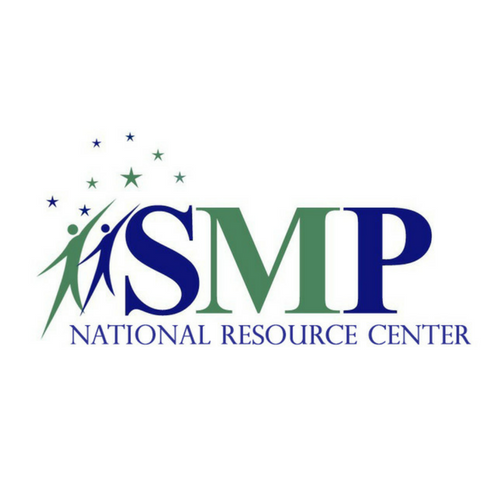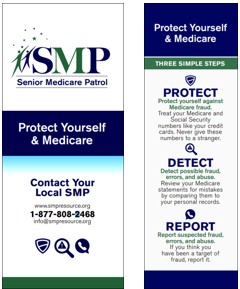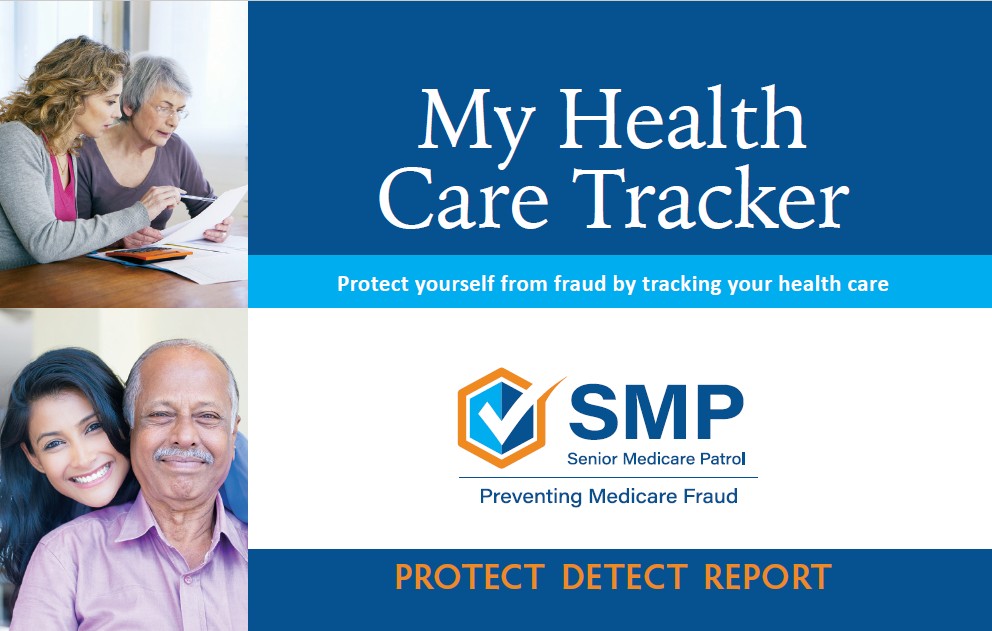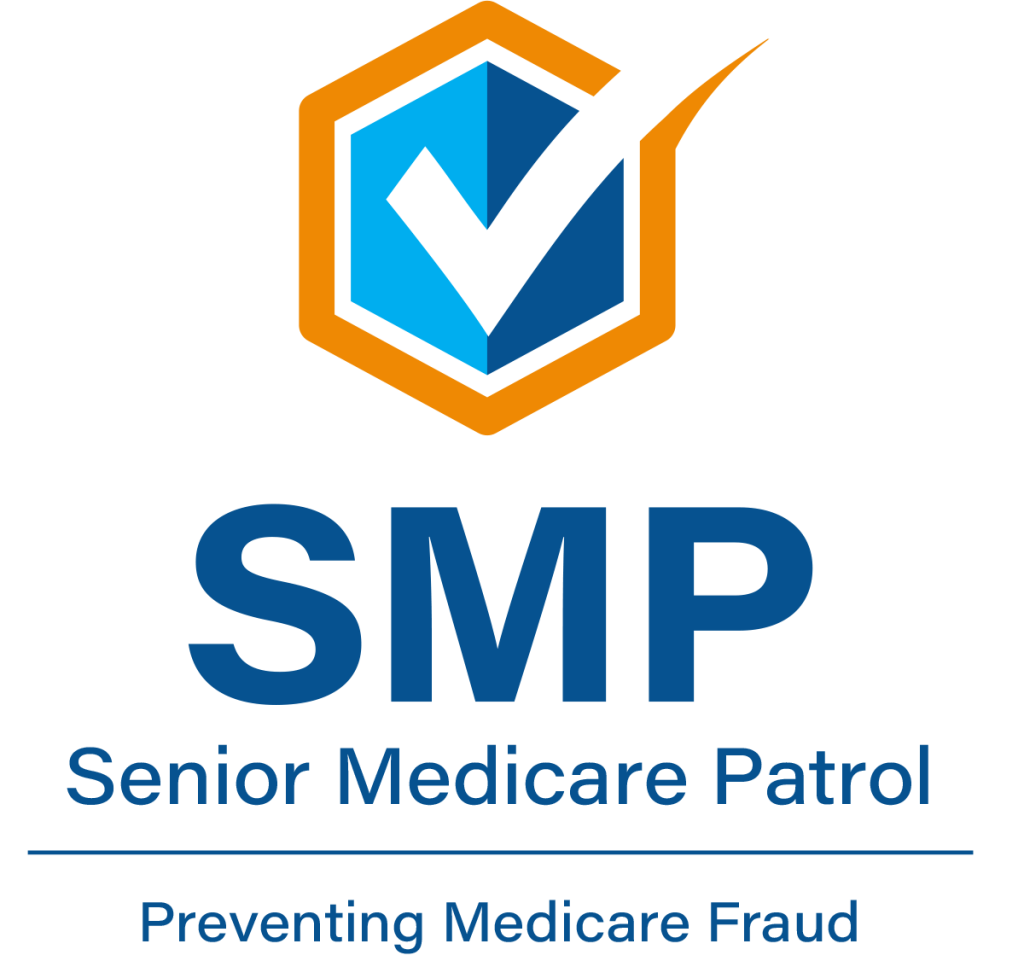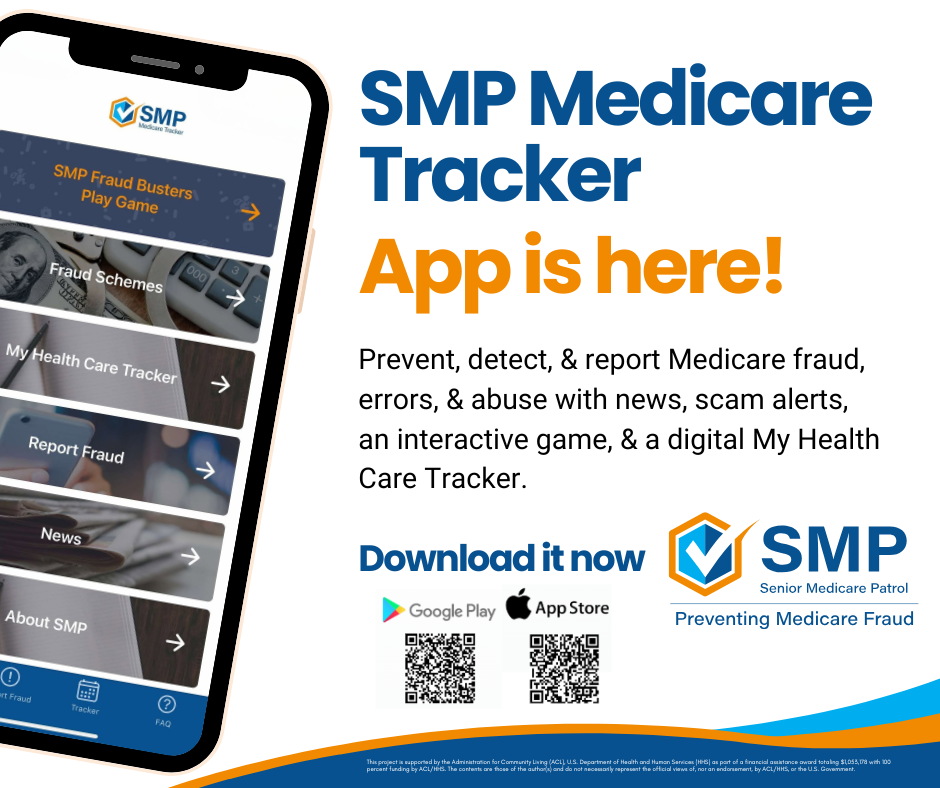
SMP Mission
Senior Medicare Patrols (SMPs) empower and assist Medicare beneficiaries, their families, and caregivers to prevent, detect, and report health care fraud, errors, and abuse through outreach, counseling, and education. SMPs are grant-funded projects of the federal U.S. Department of Health and Human Services (HHS), U.S. Administration for Community Living (ACL). Their work is in three main areas:
- Conduct Outreach and Education. SMPs give presentations to groups, exhibit at events, and work one-on-one with Medicare beneficiaries to prevent, detect, and report potential Medicare fraud.
- Engage Volunteers. The SMP program is a volunteer-based program. Protecting older persons’ health, finances, and medical identity while saving precious Medicare dollars is a cause that attracts civic-minded people to volunteer for the SMP program.
- Receive Beneficiary Complaints. When Medicare beneficiaries, caregivers, and family members bring their complaints to the SMP, the SMP makes a determination about whether or not fraud, errors, or abuse is suspected. When fraud or abuse is suspected, they make referrals to the appropriate state and federal agencies for further investigation.
SMP Projects
SMPs are discretionary grant projects funded by the U.S. Administration for Community Living (ACL). ACL is headed by the assistant secretary for aging, who is appointed by the president and serves under the U.S. secretary for Health and Human Services.
Every five years, ACL issues a new request for proposals for the SMP program and then competitively awards grants to a selected project in each of the 50 states, the District of Columbia, Guam, Puerto Rico, and the U.S. Virgin Islands.
The 54 SMP projects have been supported by the same ACL-funded national resource center since 2003. The SMP Resource Center provides this website, content on several social media platforms, a national toll-free number and info@ mailbox to assist the public in finding their SMP, and various newsletters with content for or about the SMP program. The Center also provides training, resources, and direct technical assistance to the 54 SMP projects nationwide. The SMP Resource Center is funded through a competitive grant that is awarded every five years. To learn more about the Center, click here.
History
June 2022 marked the 25th anniversary of the SMP program. Click through this interactive timeline to learn more about the history of the program
